Giant salvinia creeps into Lake Columbia
ON 01-06-2020
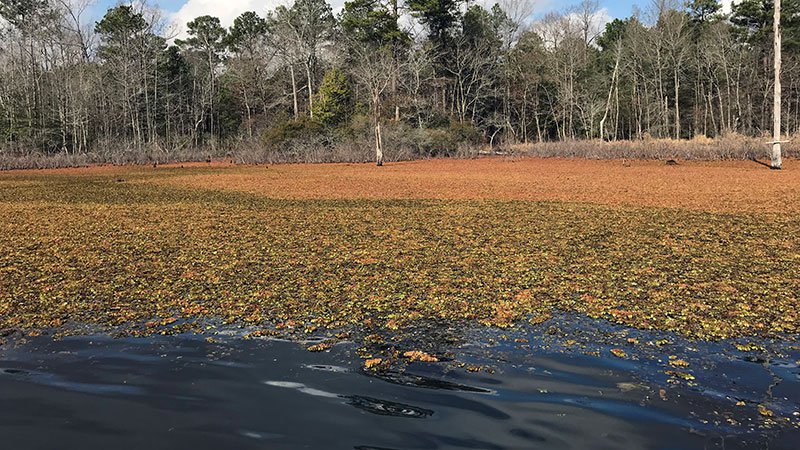
Jan. 6, 2020
Randy Zellers
Assistant Chief of Communications
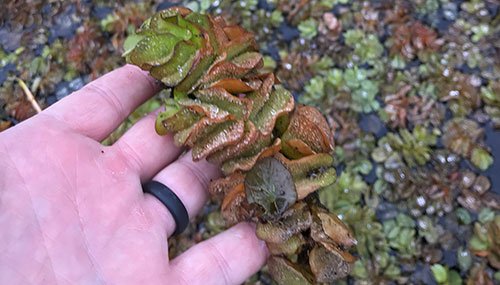
MAGNOLIA — Fisheries biologists with the Arkansas Game and Fish Commission confirmed this week that giant salvinia, a harmful invasive plant, has been found in Lake Columbia in Columbia County.
Giant salvinia is a free-floating South American plant, similar in appearance to duckweed but much larger. It grows on the water’s surface and can rapidly cover a large area, starving the water underneath of oxygen and light and choking out all other plants and animals if left unchecked.
According to Jacob Martin, AGFC Fisheries Management Biologist in Camden, the plant has been found throughout the lake.
“It has not been detected at Beech Creek, but just about every cove has some salvinia and some are filling in with it,” Martin said.
Martin says even a small patch of salvinia is a great concern.
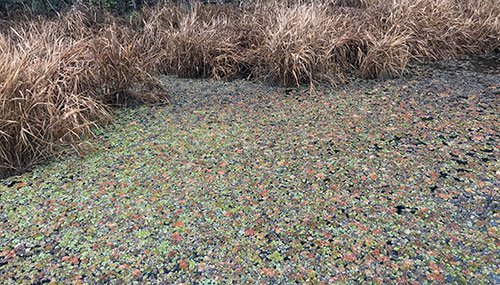
“Salvinia is able to double in size in a single week during ideal conditions,” Martin said. “Being winter it’s not ideal, but if it’s left to grow it will continue to spread rapidly.”
The plant was first found in Arkansas in November 2017 in Smith Park Lake in Miller County near Sulphur River Wildlife Management Area. In December 2018, the invasive plant was discovered in Lake Erling in Lafayette County. A December 2019 survey produced by Martin indicates the plant now is present around more than 60 percent of Erling’s shoreline.
“When I first came to the district about five months ago, I went to Erling and had to look for some of the giant salvinia to find it,” Martin said. “Now, you have to look hard to find a cove or shallow water anywhere in the lake that doesn’t have salvinia.”
Although the Arkansas Game and Fish Commission helps manage the fishery in both Erling and Columbia, each lake is owned by another entity. Erling is owned by the American Gamebird Research Education and Development Foundation, and Lake Columbia is owned by Columbia County. The AGFC has agreements with both organizations to provide technical assistance on fisheries management and has reached out to both groups to give advice on control of the problem.
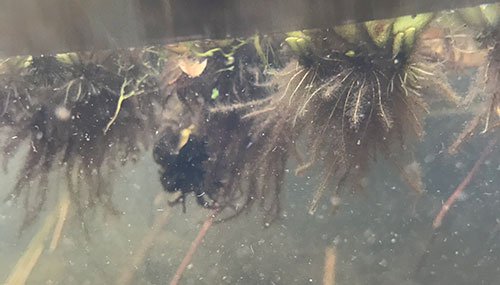
“A drawdown during winter to kill off the invasive plant and herbicides are the best methods to control it once it has become established, but that is sometimes easier said than done,” said Jason Olive, AGFC Assistant Chief of Fisheries. “Lake Erling does not have the infrastructure to draw the level down quickly, and Columbia’s designation as a water-supply reservoir complicates any issues using herbicides. Drawdowns also are seen negatively by many anglers, even though they are extremely beneficial in controlling vegetation as well as producing excellent fishing conditions in years following the low water.”
Olive said any boater, whether they are a fisherman, duck hunter, paddler or pleasure boater, should be aware of the dangers of spreading giant salvinia or any other invasive species when they travel to a new body of water. Olive also wanted to remind boaters that it is a violation of Arkansas law to be in possession of invasive plant species, which includes giant salvinia.
“Duck hunting equipment like decoys can carry fragments of the plant just as easily as the undercarriage of a boat trailer, so we want everyone to be aware of the plant,” Olive said. “The state of Louisiana spends nearly $9 million a year spraying aquatic nuisance vegetation, and nearly three-quarters of that is to fight giant salvinia. Texas and Louisiana have been fighting it for years.”
Any boaters are advised to remember the mantra, “Clean, Drain and Dry” any time they visit lakes known to have Giant Salvinia or other invasive aquatic species.
- Clean — Remove all visible plant matter from equipment before leaving the body of water.
- Drain — Let all water from the boat and motor drain completely before transporting.
- Dry — Let everything dry for at least five days before entering a different body of water. If you are unable to dry, washing with high-pressure, hot, soapy water also can help.
“Fighting this threat to Arkansas’s fishing destinations is going to take everyone’s help,” Martin said. “Anglers are our biggest partners in preventing further spread of these plants, and we’re asking everyone to protect the lakes they love.”
Anyone spotting giant salvinia in Lake Columbia or in other Arkansas lakes is asked to call the Camden regional office at 870-836-4612 to report the location.
Recent News
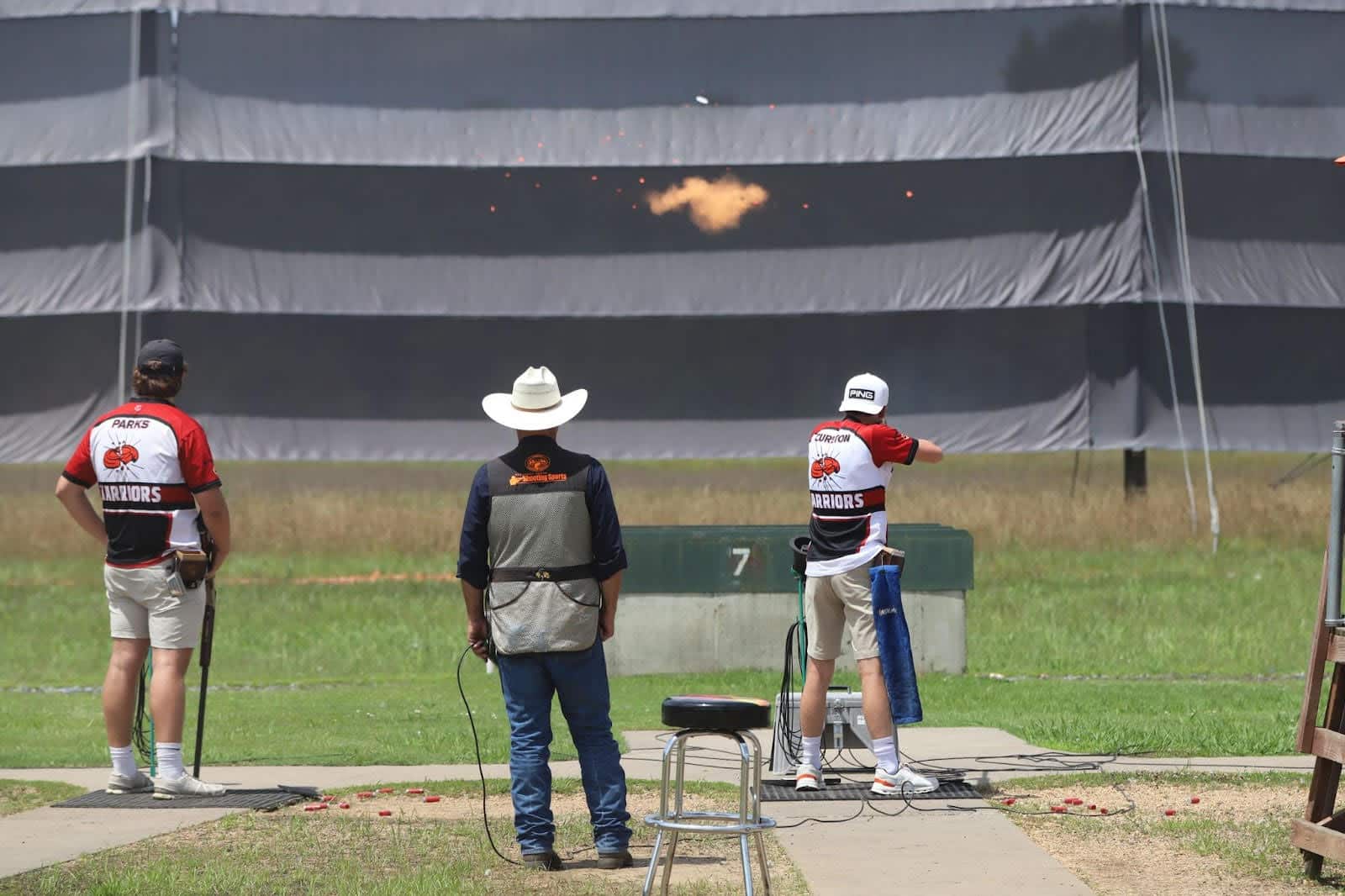
Contenders take aim as shooting sports regionals begin
Apr. 23, 2025
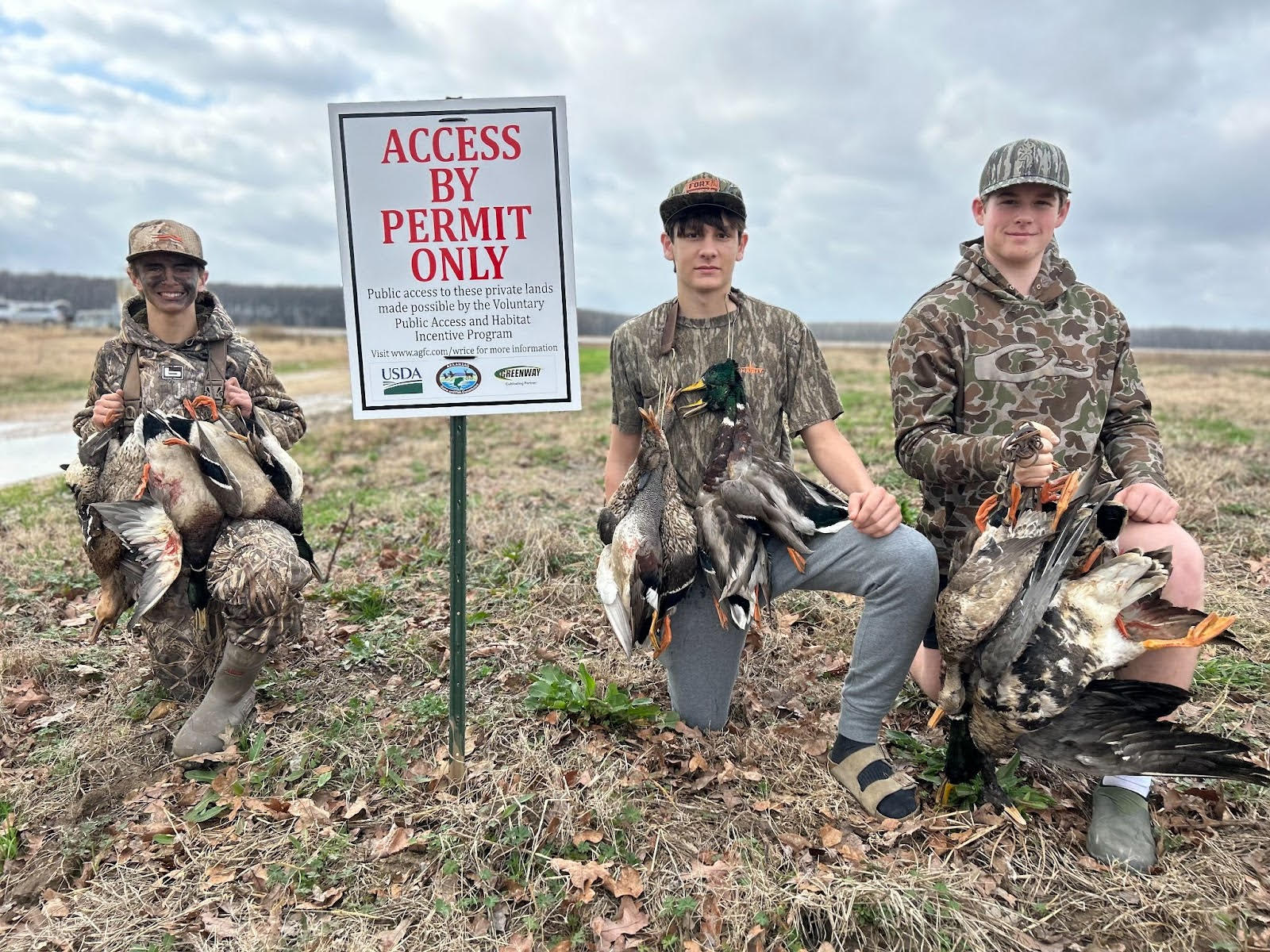
Teens turn duck season around in youth WRICE hunt
Apr. 23, 2025
Subscribe to Our Weekly Newsletter E-mails
Don’t miss another issue. Sign up now to receive the AGFC Wildlife Weekly Newsletter in your mailbox every Wednesday afternoon (Waterfowl Reports are published weekly during waterfowl season and periodically outside the season). Fishing Reports arrive on Thursdays. Fill in the following fields and hit submit. Thanks, and welcome!
